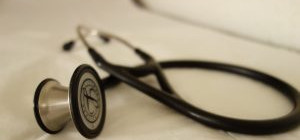Medication management is the linchpin of quality healthcare, especially in aged care settings where multiple medications often juggle for priority. With an increasingly aging population, there is a pressing need to draw attention to the safeguards that need to be in place to avert medication errors. After all, such errors not only jeopardise the health of elderly patients but can also erode trust in the healthcare system.
Medication errors can range from dispensing the wrong medication to incorrect dosages, both of which can have severe consequences. Despite the gravity of the issue, it can be managed and mitigated through meticulous planning, education, and technology.
Understanding the Risk Landscape
- Complexity in Medication Regimen
Many older adults are on multiple medications for various ailments, and this polypharmacy presents a complex landscape for healthcare providers. Drug interactions, allergic reactions, and improper dosages can all lead to serious problems.
- Lack of Standardisation
The absence of standardised protocols can often lead to confusion and mistakes, especially when several healthcare workers are involved in administering medications.
- Human Errors
From lapses in communication to simple forgetfulness, human errors are always a risk factor.
- Personal Safety Risks in Aged Care
Understanding medication management is part of a broader framework of personal safety risks in aged care. Other risks include physical hazards like falls, or organisational flaws that lead to neglect. By comprehensively addressing safety risks, we can create a more secure and nurturing environment for the elderly.
Strategies for Safeguarding Against Medication Errors
- Technological Solutions
Electronic Health Records (EHR): EHRs can play a vital role in streamlining medication management. They can offer real-time updates on a patient’s medical history, thereby reducing the chance of error due to outdated or missing information.
Automated Dispensing Systems: Technology can further aid by offering automated dispensing systems, which can store, dispense, and track medications, effectively reducing human errors.
- Staff Training and Education
Training should be provided to healthcare staff involved in administering medications. Regular workshops, webinars, and seminars can equip them with the latest best practices.
- Encourage Family Involvement
Family members can serve as an additional safety net by being aware of the medications their loved ones are on, including the dosage and frequency.
- Standardisation of Procedures
Incorporate checklists and standardised procedures for medication administration – these can act as a double-check system, reducing the scope for errors.
- Transparent Reporting Systems
Mistakes, when they occur, should be transparently reported and analysed to prevent future incidents. This cultivates an environment of continuous improvement.
Final Thoughts
Medication errors in aged care are a grave concern but are largely preventable through strategic planning, the incorporation of technology, and staff training. By taking a holistic approach that not only focuses on medication management but also addresses the full spectrum of personal safety risks in aged care, we can significantly mitigate the impact of these errors.
The stewardship of our aged population is a collective responsibility. By instilling robust mechanisms to safeguard against medication errors, we fulfill a moral imperative and take a step towards a healthcare system that warrants the trust and confidence of its most vulnerable beneficiaries.
Disclaimer: The information in this blog post is for general informational purposes only and should not be taken as medical advice. Please consult your healthcare provider for advice tailored to your individual circumstances.






